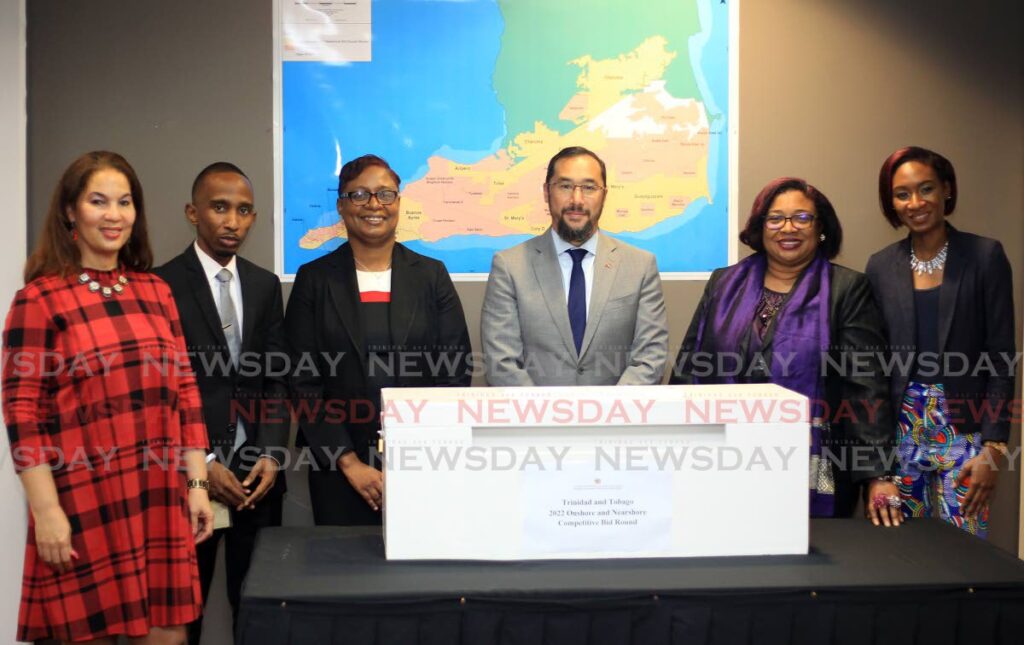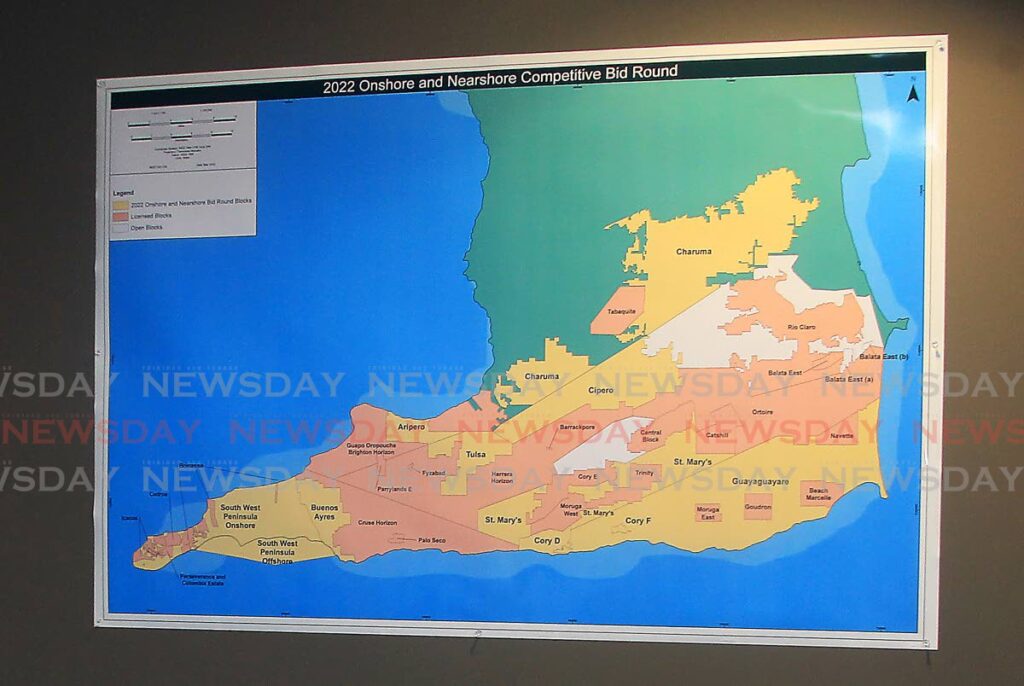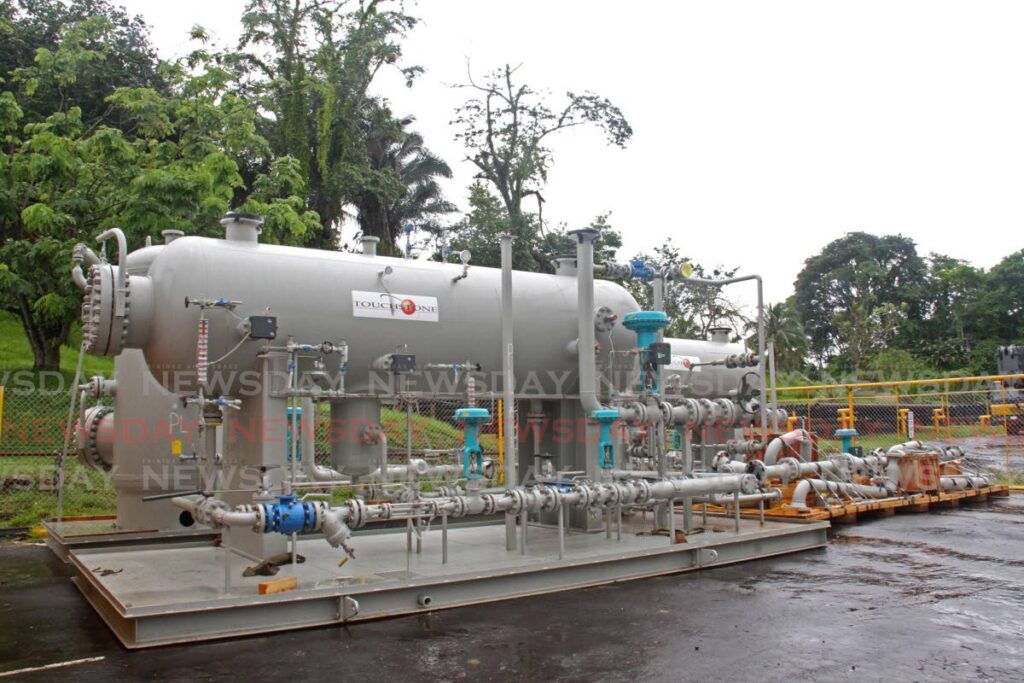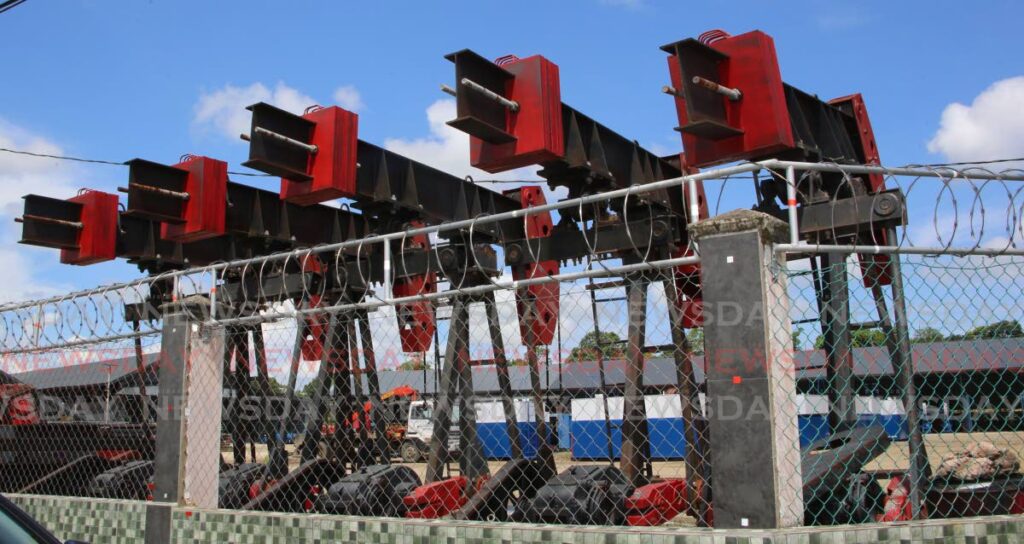
WITH BIDS in place for 11 out of 16 blocks in the completed onshore and nearshore auction, hopeful companies now have to wait about three months to find out whether they will now be successful.
However, bid rounds are just the start of the process. Exploration, drilling and discovery, could take years.
But despite concerns that the ease of doing business in the oil and gas sector, or the lack thereof could cause years of delays, Energy Minister Stuart Young said that with several changes in the culture and strategies of the Energy Ministry, TT may not have to wait as long as it would think to strike new oil and gas.
Speeding up the process
Young said in a phone conversation with Business Day that the Ministry of Energy has reduced the turnaround time between a successful bid and discovering and producing oil and gas. He said the ministry changed its culture to one that is focused on getting the job done in the safest way and in the shortest time possible.
"If we ask for a seismic report and they say two years from now, we say you have to shorten it,” he said. “We ask what they need to rework, is there data that the Ministry of Energy or anybody else has, that we can provide for them.”
“We've actively been working with the EMA. Very often you'll require EMA approval for new lines of work to be done in virgin territory, etc. We work with the other authorities to make sure those are granted in as short a time as possible whilst protecting the environment. So really, it is just a new attitude, from the highest level.”

The EMA is an independent body which operates under the Environmental Management Act, committed to sustainably manage the natural resources and environment by providing a transparent framework to facilitate policy and decision-making in development through regulation and collaboration.
EMA president Hayden Romano says the EMA steps into the drilling process after contracts are awarded. From there, companies would need a certificate of environmental clearance (CEC) before beginning operations.
The CECs are site specific, Romano said. The EMA looks at the nature, scale and location of the block.
"The applicant would have to provide us with all the information on the site," he said.
"What is the activity they plan to do, all the information with respect to the biodiversity of the site, topography of the site, and whether there are fenceline communities for other stakeholders."
The Energy Chamber also lauded the ministry’s diligence in guiding the process along for companies.
“The significant technical work undertaken by the Ministry of Energy and the quality of data available to bidders also had a positive impact,” it said.
With bids in place the Government now has to assess the proposals and come back in three months’ time to announce the winners.
The winners would be determined based on a points system described in schedule 6 of the Petroleum Regulations order 2022. The points system differs by the blocks. For example, the Guayaguayare onshore block's points system is based out of 320 points total – with a 160-point maximum for the minimum exploration work programme; 60 total points for the geophysical and geological work programme and 100 points total for drilling depth.

Young said these proposed work programmes would be one of the important factors of the assessments.
“That is where you would find the opportunities to reduce timelines for bringing liquids and gas,” Young said.
Removing red tape
As far as all stakeholders are concerned, TT would only stand to benefit from the quick movement through processes to get companies drilling.
Former UNC energy minister Kevin Ramnarine told Business Day that the benefits of drilling on land redounded to more than just oil and gas revenues.
“It is more impactful from an employment point of view,” he said.
"On land it employs more people, offshore, there is more automation.”
Ramnarine said the spin-off activity, from transport to supply of rigs, to the supply of mud for the rigs to labour all redounds to economic growth.
“Then you go into catering and taxi services and auto services…it is a whole spin-off.”

That is why Ramnarine insists that the faster the approvals are made and companies begin to break ground the better it would be for the nation.
The last successful bid round was in 2013 where Touchstone won the bid for the Ortoire block. In October 2022 it finally achieved first gas.
Ramnarine said the disparity in time to get approvals and earn revenue from the drilling because of red tape would only hurt the country.
“There is a time value of money,” he said.
“A dollar today is worth more than a dollar tomorrow. So we really have to address this as a country. It's not just the energy sector it is a national issue.”
Red tape is not the only delay, according to Geological Society of TT president Javed Razack. The issues that affect any other business also affect the oil and gas industry.
“There are issues around crime, the rainy season, floods, and they make it more difficult,” he said.
“Things such as importing things and having them stuck on the ports. There are difficulties in all of this.”
Exploration easier on land
Young was pleased by the result of the onshore bid round especially after the deepwater bid round brought up a less than favourable result. From the 11 blocks put up for auction 16 bids were made on eight blocks.
Young explained to Business Day that the main reason behind the success of the bid rounds was the most obvious one – striking oil is easier on land.
“It is a lot easier for people to access and to do exploration and production onshore than it is offshore. So from that aspect it is not surprising,” Young said.
In 2020, six shallow water blocks were put up for auction and a consortium of Shell and bpTT bid for two blocks. Similarly in 2021, 17 blocks were offered to bid and a consortium of Shell and bpTT bid on four blocks.

One major factor that makes it easier to produce on land is cost. Razack said the cost of deepwater exploration is tremendous.
“A deepwater well is about US$100 million; a deep land well is about five million,” he said.
Razack said oil and gas is more difficult to obtain offshore especially when the geology shows a low chance of making a significant discovery. He also noted that infrastructure and costs of exploration would also factor into the high price.
"The geology is not the same everywhere in Trinidad and offshore," he said. "We have a diverse geological basin. So offshore and deepwater is unproven oil and gas. Gas is particularly difficult to monetise because they can't pull it up into a tanker where you need to pipe it to shore. The volume of oil and gas you need to find offshore to make it worthwhile is a lot."
Both Young and Razack also noted the fact that many of the companies which bid had already been doing business in TT.
Primera Oil and Gas, a subsidiary of Touchstone – the last bidder to achieve success out of exploration and drilling on land – submitted the most bids, for five blocks, Eco Oil and Gas Solutions bid for three blocks, Hunter Resources Corporation made three bids, Decker Petroleum Marketing Co Ltd, AV Oil and Gas Ltd, NABI Construction, Challenger Energy Group, Guayaguayare Onshore and Trinity Exploration and Production TT Ltd all made one bid.
“The companies are there, a lot of them are already in TT,” he said. “So it's not like they came in fresh from outside and they need to learn everything from scratch. They already have operations. In some cases they have cash flow already for funding. They understand the lay of the land,” Razack said.
The adjustments in the tax regimes, recently noted in the budget, were also a factor in what made the blocks more attractive. The adjustments took effect from January 1.
“The reduced rates of supplemental petroleum tax for new fields and for smaller producers would have positively impacted the projected economics of any oil find.”
“This is especially the case as these blocks are being offered with exploration and production licences rather than the production and sharing contracts favoured in offshore bid rounds,” said the Energy Chamber in response to questions from Business Day.


